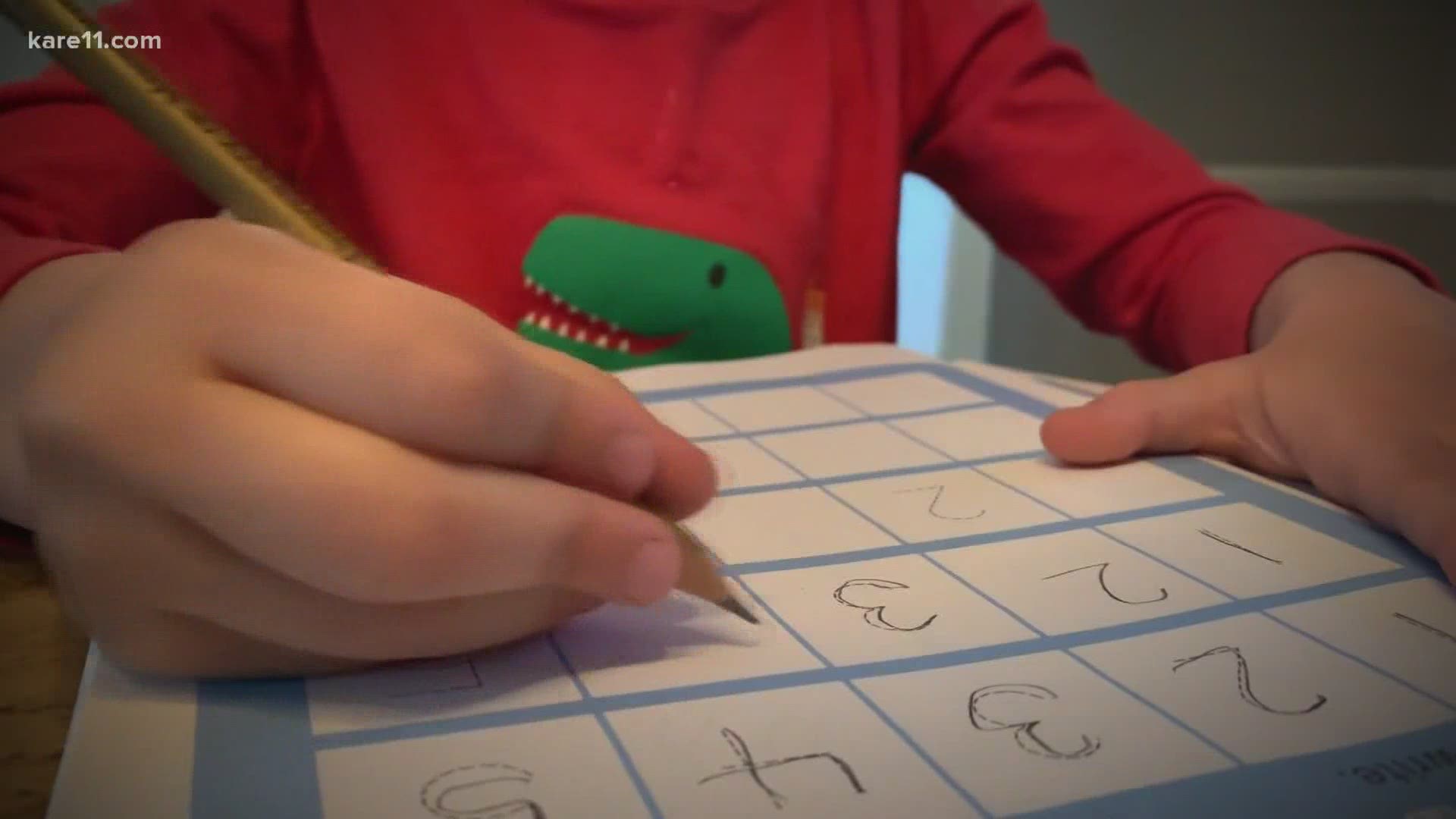MINNEAPOLIS — Whether children are starting the school year in a distance-learning, hybrid or in-person model, they’re all facing a year that will look, feel and be different than other years.
And with those dramatic changes, comes an understandable and natural level of anxiety.
“I’m definitely seeing more anxiety than you would expect among kids. One of the things that can cause a lot of anxiety is uncertainty,” said Dr. Sarah Jerstad, a child psychologist at Children’s Minnesota.
Jerstad notes that the uncertainty is showing up in several ways, depending on the child’s specific circumstances: teenagers may not know their schedules yet, students physically attending school may not know how long that model will last, and those participating in a hybrid model may be worried about remembering their specific schedule.
Look for ‘normalcy’
But within that uncertainty, Jerstad recommends emphasizing the familiar.
“I think some of the things you can do is create those traditions as much as possible. Normalcy feels so reassuring to kids. And even though they know this isn’t a normal school year, maybe you can still pick out that ‘first day of school outfit,’ or take that ‘first day of school picture’ and send it to friends or family. Go shopping for school supplies. And just give them a little bit of a feeling of normalcy,” Jerstad said.
‘Set expectations’ and check in with *all children
But Jerstad also urges parents and the greater community to “set expectations,” recognizing this year is different.
“I think last spring, the way I looked at that was sort of crisis management. And crisis management is short term, and so people get through it. They do what they can to cope. This year has to be a new normal,” she said, also noting: “This isn’t going to be the same. And so parents should really keep tuned into how is the kid feeling, how are they doing day to day. Check in with them emotionally.”
She also recommends the greater community – the village – continue to check in on children who may be living in more challenging circumstances.
“As a community, whether it’s mental health providers, whether it’s parents, you know when they say, ‘my kid’s friend is clearly struggling and hasn’t been showing up.’ Can we kind of join in and try to support those kids who need that support,” she said.
Let kids be kids
Jerstad recommends parents seek out new opportunities for kids to socialize – perhaps new volunteer opportunities. And she urges parents acknowledge the sadness related to the changes while also recognizing the need for kids to simply have fun.
“One of the things I think tends to happen when we have kind of a collective anxiety or stress about something is that we focus on it, we talk about it a lot. And for kids, I think sometimes it can feel like we talk about it endlessly or it’s all that’s part of the conversation. So let’s not forget to bring some fun and normalcy into our day to day, to kind of help kids remember, there is more than this. And there is something beyond this,” Jerstad said, adding: “So yes, let’s be ready for it. Let’s prepare. Let’s cope. But let’s also bring some normalcy into day-to-day life.”
Advice for parents
Finally, Jerstad offers some specific advice for parents: simply, go ahead and just be parents.
“I think as parents, it feels like you have to be everything, you have to be their teacher, or maybe their coach, or maybe their mentor, their music teacher. And parents do have a bigger role in that… but kids are going to benefit when parents are still parents, and kind of leave that role to the teachers and to the others,” she said, while still encouraging parents to stay connected to the school and noting that students will also gain new independence through the process.
One KARE family’s perspective
And all of this comes as affirmation and comfort to at least one parent, KARE 11’s Karla Hult.
Karla interviewed her own daughters – 8-year-old Isabella and 10-year-old Grace – about their thoughts upon returning to school. And they offered up a decidedly mixed bag.
Karla: “What do you think about not physically going back to your school and instead being at home?”
Isabella: “Well, I miss school, and I miss getting to see all my friends and my new teacher.”
Grace: “I’m excited and nervous at the same time.”
Karla: “Why are you nervous, do you think?”
Grace: “I want to go to regular school, and also I don’t know what the year… what we’re going to do during the year.”
The girls gave their parents failing grades for how their distance learning went during the spring – room for improvement, clearly – but they did offer this hopeful advice to others also starting the year:
Grace: “Give it your all, and don’t give up.”
Isabella: “Work with it.”
For more information or resources on how to navigate the new year, just go to: https://www.childrensmn.org/behavioral-support-hub/

